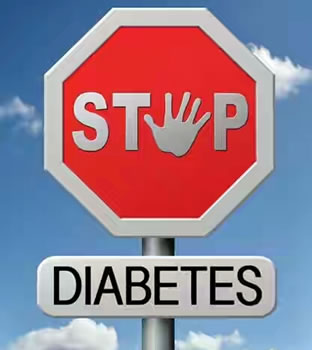The experts made the call at a press conference organised by the University College Hospital (UCH) Ibadan and the Diabetes Association of Nigeria to commemorate the day.
A consultant physician and endocrinologist, Dr Williams Balogun, said various surveys carried out in the country had shown a significant increase in the number of people with diabetes.
He said there had been about 5.1 per cent increase, with most of those concerned ignorant of the disease and its management.
“The burden of diabetes and its attendant complications have become unacceptably high.
ALSO READ: German ex-nurses admits killing patients
“At the UCH, we see about 50 to 80 old patients weekly out of which eight to 10 are new patients.
“On an average day, our medical wards are half-filled with diabetes patients who have unhealed wounds on their feet and waiting for leg amputation or are already amputated.
“Many of these patients are battling with kidney failure and several others visit eye clinic to salvage eyes that are fast going blind.
“The harrowing experience of sufferers and their families in and out of the hospital is better imagined,” he said.
Balogun said that major challenges in the treatment of diabetes include poor healthcare system and the fake drugs in circulation in the country.
“We want to strongly appeal to our government at all levels to revamp our healthcare system and make it accessible to all.
“Government should subsidise diabetes drugs, especially insulin, and ensure regular supply of genuine drugs.
“Government needs to do more to ensure adequate staffing, capacity building and manpower development in the healthcare sector.
“They should promote healthy living and environment through appropriate policies and regulations,’’ he said.
In her remarks, Dr Jokotade Adeleye, a consultant endocrinologist at UCH, said there was the need to educate care providers on best practices and standard care for diabetes patients.
“Diabetes is a chronic illness that requires maximum care and management.
“Educating care providers at all levels of the health sector will ensure its effective management.
“Again, because the cost of treatment and management is high, there is the need for philanthropists and non-governmental organisations to support people living with diabetes.
“But government at all levels have a lot to do in helping diabetes patients,’’ she said.
Mrs Grace Adekoya, an Assistant Director in the Nursing Department at UCH, called on family members to be knowledgeable and supportive in the care of diabetic patients.
“The role of family members in the care of diabetic patients is enormous and vital to their well being.
“It is a family illness and so all hands must be on deck to ensure that it is properly managed,” she said.
NAN reports that the theme for the 2018 World Diabetes Day is “ The Family and Diabetes.”






